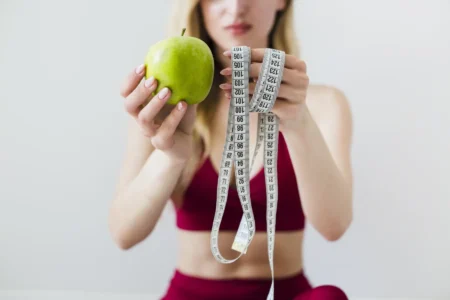 People try diets for all kinds of reasons—health, weight, energy, confidence. But the truth is simple: no single diet works for everyone. Bodies react differently, routines differ, and lifestyles change over time. That’s why new diets appear every year, and why people keep searching for “the one” that finally fits.
People try diets for all kinds of reasons—health, weight, energy, confidence. But the truth is simple: no single diet works for everyone. Bodies react differently, routines differ, and lifestyles change over time. That’s why new diets appear every year, and why people keep searching for “the one” that finally fits.
A good diet doesn’t make you feel trapped. It supports you, keeps you energized and makes your daily life easier, not harder.
The Appeal of Low-Carb Diets
Low-carb diets like keto or Atkins gained popularity because they help some people control hunger and stabilize energy. When you cut down on sugar and refined carbs, your blood sugar stops jumping all over the place. You feel steadier. You might lose weight quickly at first because your body uses stored energy.
On the other hand, low-carb isn’t magic. Some people feel foggy or lethargic when carbs drop too low. And if you love bread, fruit or grains, the routine becomes hard to maintain. Low-carb works best for people who enjoy proteins and healthy fats and don’t mind skipping sweets.
The Flexibility of Balanced Diets
Balanced diets focus on moderation instead of restriction. You eat carbs, proteins, fats, vegetables, everything—just in steady, thoughtful amounts. Mediterranean-style eating is a good example: lots of plants, lean proteins, olive oil, whole grains, nuts and seafood.
This approach feels sustainable because nothing is off-limits. You still enjoy food, but you make smarter choices most of the time. Balanced diets improve long-term health without creating the mental stress many strict diets cause.
Why Plant-Based Diets Keep Growing
Plant-based diets attract people for health, ethics or simply because they feel lighter after meals without heavy meats. More vegetables and whole foods usually mean better digestion, clearer skin and improved energy. Fiber helps your gut do its job, and your body responds well to meals rich in nutrients.
Still, plant-based doesn’t automatically mean healthy. Processed vegan snacks can be just as unhealthy as anything else. You need variety—beans, lentils, grains, nuts, seeds—to make sure your body gets enough protein and essential nutrients. When done right, though, plant-based diets can support overall health beautifully.
High-Protein Diets for Energy and Strength
High-protein diets help people feel full longer, build muscle and keep blood sugar stable. They work well for active lifestyles or anyone trying to improve strength and recovery. Lean meats, eggs, Greek yogurt, tofu, legumes—these foods help your body repair and stay strong.
On the other hand, too much protein without balance can strain your system. Protein works best when paired with healthy fats and complex carbs. It’s a tool, not a full solution.
Intermittent Fasting: Not Eating All the Time
Intermittent fasting isn’t about what you eat—it’s about when you eat. You give your digestive system a break by eating only during certain hours. Some people feel more focused, lighter and less bloated. It can help with weight management because you naturally reduce snacking.
However, fasting doesn’t suit everyone. If you wake up hungry, if you get lightheaded easily, or if time-restricted eating feels stressful, this style may work against you. Listening to your body matters more than following a schedule.
Why Restrictive Diets Often Fail
Cutting out entire food groups works for some people—but not for long. Strict diets can create guilt, cravings and binge cycles. They make eating feel like a chore instead of something enjoyable. When you’re constantly thinking about what you can’t have, your mind eventually rebels.
Healthy eating should never feel like punishment. It should support your lifestyle, not control it.
Finding the Diet That Fits Your Life
The best diet is the one you can actually live with. Something that respects your routines, your taste, your culture and your mental health. A good diet leaves you energized, not drained. It gives you room for real life—birthdays, dinners out, cravings, comfort foods—without ruining progress.
Start by noticing how your body reacts to different foods. Notice what gives you energy and what makes you sluggish. Notice your hunger patterns, your mood, your digestion. Your body tells you far more than any trending diet ever will.
In the end, diets aren’t about restriction—they’re about discovering how to nourish yourself in a way that feels natural, sustainable and genuinely good.
Picture Credit: Freepik
